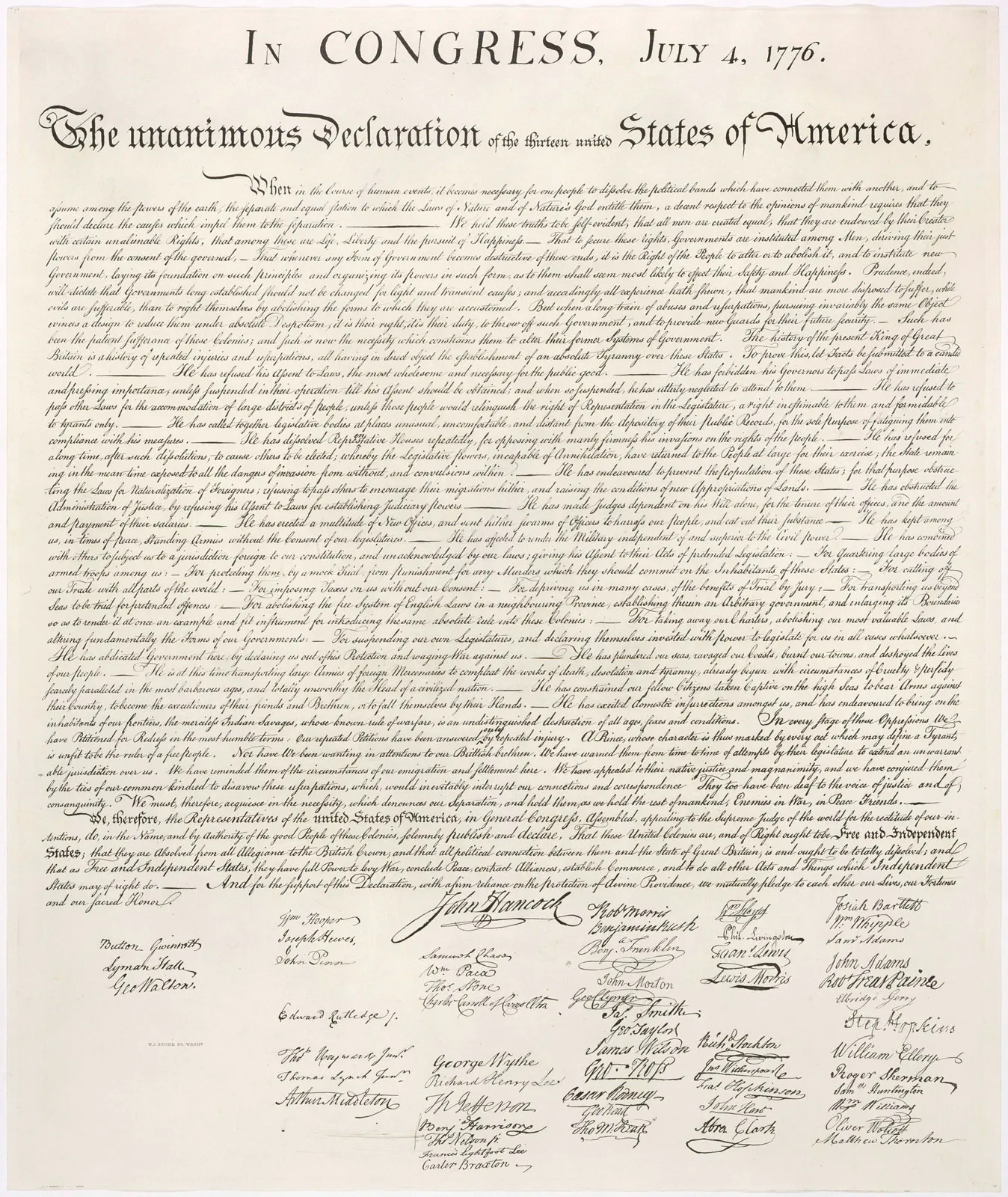The Declaration of Independence stands as a cornerstone document not only in American history but also in the global struggle for freedom and self-determination. Adopted on July 4, 1776, by the Continental Congress, this revolutionary document boldly asserted the independence of the thirteen American colonies from British rule. Authored primarily by Thomas Jefferson, with contributions and edits from other committee members, the Declaration remains a timeless testament to the enduring principles of liberty, equality, and justice.
Historical Context and Origins
The seeds of discontent between the American colonies and Great Britain were sown long before the Declaration’s drafting. British policies, such as the Stamp Act and the Townshend Acts, imposed taxes and restrictions on the colonies without their consent, leading to widespread resentment and resistance. The cry of “No taxation without representation” echoed throughout the colonies, reflecting a growing desire for autonomy and self-governance.
In June 1776, Richard Henry Lee of Virginia put forth a resolution in the Continental Congress proposing independence for the colonies. A committee, including Thomas Jefferson, John Adams, Benjamin Franklin, Roger Sherman, and Robert Livingston, was appointed to draft a formal declaration. Jefferson, known for his eloquence and philosophical insights, took the lead in crafting the document that would outline the colonies’ grievances and assert their right to independence.

Key Themes and Contents of the Declaration
The Declaration of Independence can be divided into three main parts:
- Preamble: The opening paragraphs eloquently state the philosophical foundations of the document, asserting that all men are created equal and endowed with unalienable rights, including life, liberty, and the pursuit of happiness. This section highlights the Enlightenment ideals that inspired the American Revolution and continues to resonate in discussions of human rights worldwide.
- Grievances Against the King: The Declaration lists specific grievances against King George III, accusing him of usurping colonial self-government, imposing unjust laws, and maintaining a standing army without consent. These grievances serve to justify the colonies’ decision to break away from British rule and establish their own government.
- Declaration of Independence: The final section formally declares the colonies’ independence from Great Britain. It asserts that the colonies are free and independent states, absolves them from all allegiance to the British Crown, and declares them entitled to the full power to levy war, conclude peace, contract alliances, establish commerce, and do all other acts and things which independent states may of right do.
Significance and Legacy
The Declaration of Independence holds immense significance both in its historical context and in shaping subsequent events and ideologies:
- Foundational Document: It laid the groundwork for the United States Constitution, which would be drafted over a decade later, and established the fundamental principles of American democracy.
- Global Influence: The Declaration inspired revolutions and independence movements worldwide, serving as a model for asserting rights against oppressive governments.
- Symbol of American Identity: It remains a symbol of American ideals and values, including liberty, democracy, and the pursuit of happiness.
Modern Interpretations and Challenges
While the Declaration of Independence is celebrated for its principles of equality and freedom, it has also faced criticism and scrutiny. The document’s initial omission of rights for women, African Americans, Native Americans, and other marginalized groups has sparked debates about the inclusivity of its ideals and the ongoing struggle to achieve true equality for all.
Conclusion
In conclusion, the Declaration of Independence stands as a testament to the courage and vision of America’s Founding Fathers. Its enduring principles have shaped the course of history, inspiring generations to fight for liberty and justice. As we reflect on its significance, we are reminded that the quest for freedom is an ongoing journey, requiring vigilance, inclusivity, and a commitment to upholding the rights of all people.
Through its eloquent words and bold declarations, the Declaration of Independence continues to resonate as a beacon of hope and a call to action, reminding us of the timeless importance of liberty and the unyielding spirit of those who strive to secure it for themselves and future generations.
Source : chatgpt.com
